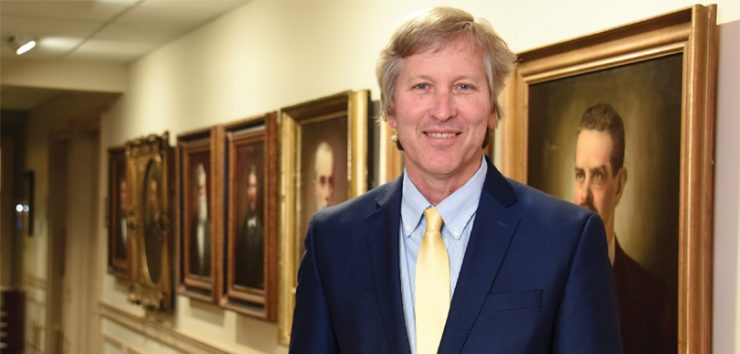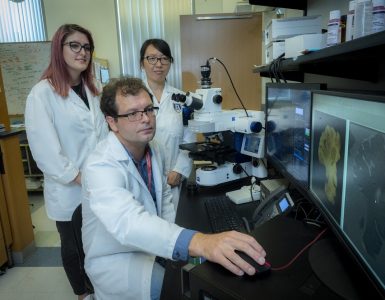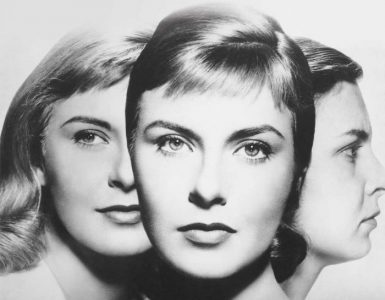It’s been quite a few years since my actual first Match Day, but this year was another first for me. It was my first official Match as dean, and I have to tell you that it was really great to stand on that stage, to look at our students, to see their enthusiasm, to hear their success.
Students like Lucia Chen who matched in neurology at Vanderbilt University Medical Center, like Joel Joseph who will be studying internal medicine at Wake Forest and like Taylor Smith who will be studying OB/GYN right here.
This year 210 of our students participated in Match Day, 176 from MCG’s home here in Augusta and 34 seniors attending our campus in Athens in partnership with our great colleagues at the University of Georgia.
Our Class of 2018 is pursuing 22 specialties in 32 states; 25 percent will stay in Georgia for their graduate medical education. Better than 40 percent chose a primary care specialty, including nine students who chose internal medicine as a prelude to a subspecialty like hematology/oncology.
Their match rate was an outstanding 98 percent. Our 21 residency programs that participated also matched well, another tribute to the great medical education provided at Georgia’s public medical school.
You will see from President Keel’s column in this issue that our GME programs got some other good news recently when an additional $10 million in support was included in the current state budget. Those additional dollars will enable us to better balance the reality that GME is expensive – but essential – and that reimbursement rates today leave us about $20 million in the hole annually. That is primarily because federal support for these programs is capped at both the number of residents and related costs back in 1996. We again thank Gov. Deal, our state legislature and President Keel for their support.
This seems like a good time to also note that our University System of Georgia’s GME Regents Evaluation and Assessment Team (GREAT), which began back in 2011 with discussions about how to grow GME programs in Georgia, has essentially doubled the number of teaching hospitals and increased GME capacity by about 40 percent in our state. MCG has been part of those important conversations from the beginning and I am pleased that Dr. Shelley Nuss, a GME expert and campus dean of our Athens partnership, chairs this committee.
It is really good to see this kind of support for physician education in Georgia, a state which ranks 39th in the number of active physicians and residents and fellows per 100,000 population – although I suspect the GREAT program has whittled that some. We are also 32nd in the number of medical students based on Georgia’s large population, even with MCG’s class size being among the nation’s largest. The better news is that our state ranks 14th in the percentage of physicians retained from a public undergraduate medical education.
As with many things in our lives, both physician education and practice today are a definite mixed bag. Physician burnout is real and multifaceted. There is actual and perceived loss of autonomy. The homogenization of the hospitals where we practice can be tough. The seemingly endless focus on documenting care, which ironically often takes our focus and time away from patients, is frustrating.
Don’t get me wrong, electronic medical records definitely have their value, like when you want to review a patient’s chart, not for just what you have observed and treated yourself, but for his or her interactions with other physicians as well. Still somedays it feels like we stare at a computer screen more than at our patients, even when we are in the same room with them.
That particularly saddens me, because like for many of you, patients are at the heart of why we became physicians and why our students want to be physicians. Even still, I catch myself in moments when I am seeing my patients as customers, as someone to bill and collect on because of the very real financial pressures that we all face. This temptation in medicine is tremendous, and the polar opposite of why we are here.
But this is also real. Like so many of you, I know in my soul that there is no better profession and certainly no better job for me. Being a doctor is an honor, being able to also teach this profession and even add to the knowledge we teach through research, is an astounding trifecta and one that I would never change.
Because there are still those moments when I see a student leap with joy about their future, when I hear the amazing impact of you, our graduates, when I actually look at my patient instead of my computer.
I wish for each of you the continued ability to find the magic in what you do, and the passion to continue to do it so well. And I thank you for your support of the Medical College of Georgia.
Respectfully yours,
David C. Hess, MD
Dean, Medical College of Georgia
Executive Vice President for Medical Affairs and Integration, Augusta University
Presidential Distinguished Chair










